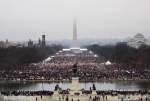I guess it’s official. I can no longer call the mid-sixties middle age, since I don’t expect to live to 120. Aside from the various insults of physical deterioration, what I noticed is my utter lack of tolerance for romantic comedies and how romance is presented for entertainment. My limited genres make it difficult because I devour audio books while commuting. I don’t want tragedies. I avoid nonfiction in the pursuit of distraction. I don’t like my entertainment (movies or books) violent or dark. As you can see, the list gets short. I make an exception for anything Outlander because Diana Gabaldon is a brilliant writer and thorough researcher, so I always learn from her. I also make exceptions for time travel, ghosts, or murder – preferably all three. What I have the least patience for is the affair narrative: forbidden lovers and all that. It’s not the moral imperative of these pining lovers that disturbs; it is the apparent inability to make choices and follow-through. It’s tedious. And it is a very old, boring story.
I’m not without a moral compass. I am developing a robust impatience with the absence of morality. By that I don’t mean the bible-beating hellfire nonsense. I do mean the kind of morality that guides how we treat other people. Maybe social conscience is a better phrase. I don’t pass judgement based on traditional values. I do judge unfavorably (not assuming anyone cares) the absence of conscience, or a hyperactive conscience others want to impose on the rest of us. By extension, that leads me to consider hypocrisy.
From a purely pragmatic standpoint, accepting hypocrisy is confusing. You might think you know which way is up, but really those folks are only applying their rules to you, not to themselves. Nor do they require consistency or logic of themselves. Really, how can a society function? Obviously, not well. Here is an example so obvious that it shouldn’t have to be said, but since I haven’t heard any of the pundits or talking heads do so, I will. (Though to be fair, I have seen some very good political cartoons.) How in the world can one rant about the right to not wear a mask in a highly contagious pandemic, but push to make a woman’s right to choose illegal? How in the world can one claim a fetus is a child, but do nothing to prevent school shootings? There is a significant number of people who don’t want children wearing masks in school, but are comfortable with children hiding under their desks for active shooter drills. At this point I usually include attribution, but it’s pretty easy to Google school board meetings and watch how the people called parents are acting out over something intended to protect their children: masks. The conclusion I draw is that fetuses are more important than living human beings (children and adults), and certainly more valuable than women.
The underlying moral imperative should be what is best for the common good. Remember the common good? The social contract? That isn’t even discussed anymore. If there is no common good, the special interests of each tribe are just irrelevant. We are propelling ourselves to dark ages where might is right and there is perpetual violence. In fact, we’re pretty damn close right now.
I wax romantic about an era where women have equal pay, immigrants are welcome, education and the welfare of children is the highest priority. Make no mistake that outlawing abortion is meant to oppress poor women because women of means will still be able to do what they want. If you force a woman to give birth will you also force the sperm donor to pay to support the child? And what of rape or incest victims? The real issue propelling this pro-birth vitriol is the strong desire to remind women that their real and primary purpose is procreation. Nothing else matters. And as breeders, they are subordinate to the men running things. These men are not letting go of power. Not to women. Not to minorities. And they are perfectly able to find some women to enable their narrative as well – even bible verses; just like they did with slavery.
What did Jesus say about abortion? About being gay? Not one damn thing. Now he did have something to say about divorce, though. That is never a popular sermon. I have a few divorces under my belt, so understand I’m not attacking divorce. For many of us that has been a painful but welcome solution to a problem that already existed. My point is that you don’t get to claim religious/Christian objections to abortion/mask-wearing/vaccines (fill in the blank) if you won’t do the same about divorce. The difference is that too many congregants and church donors have been, or aspire to be, divorced. Can’t cut that stream off.
I thought when I got this old I would be able to look back with perspective and be less pissed-off. Now I’m not going to say, like those before us, ‘this is the worst it’s ever been.’ In fact, things are not the worst. Remember the dark days of the civil rights movement? Yet we have to revisit voting rights every stinking generation. It’s not the worst things have ever been, but there are powerful forces, willing to use violence, working to propel us backwards at the expense of anyone/anything who gets in their way – including democracy and the welfare of the environment.
This is why I love “Star Trek: Next Generation”. As Captain Picard told us, in his generation poverty has been eliminated. All you have to do is enrich yourself. There is enough food for everyone and artists are appreciated. Women, and in fact other species, are officers. If this can be in Gene Roddenberry’s imagination, why can’t we get closer here on earth? Honor the prime directive people. This world with white men in charge is a hot, mean-spirited, violent mess. And it is not sustainable.
This is when I am relieved to be old and without offspring. My animal family won’t likely live as long as most humans and I don’t have to lament the legacy being left for future generations. I care, but I’m tired. We shouldn’t have to keep fighting the same fights for equity and justice. We should be able to build on past progress, not tear it down.
I feel I should close with hope, or something positive. Hmmm. I felt hope when I participated in the 2016 Women’s March in DC. I felt hope when I marched with Black Lives Matter here in Pennsylvania. However, even these important civic activities are wishes. I want to see something achieved. I want to close quoting Picard: “Make it so.” -J.B.















